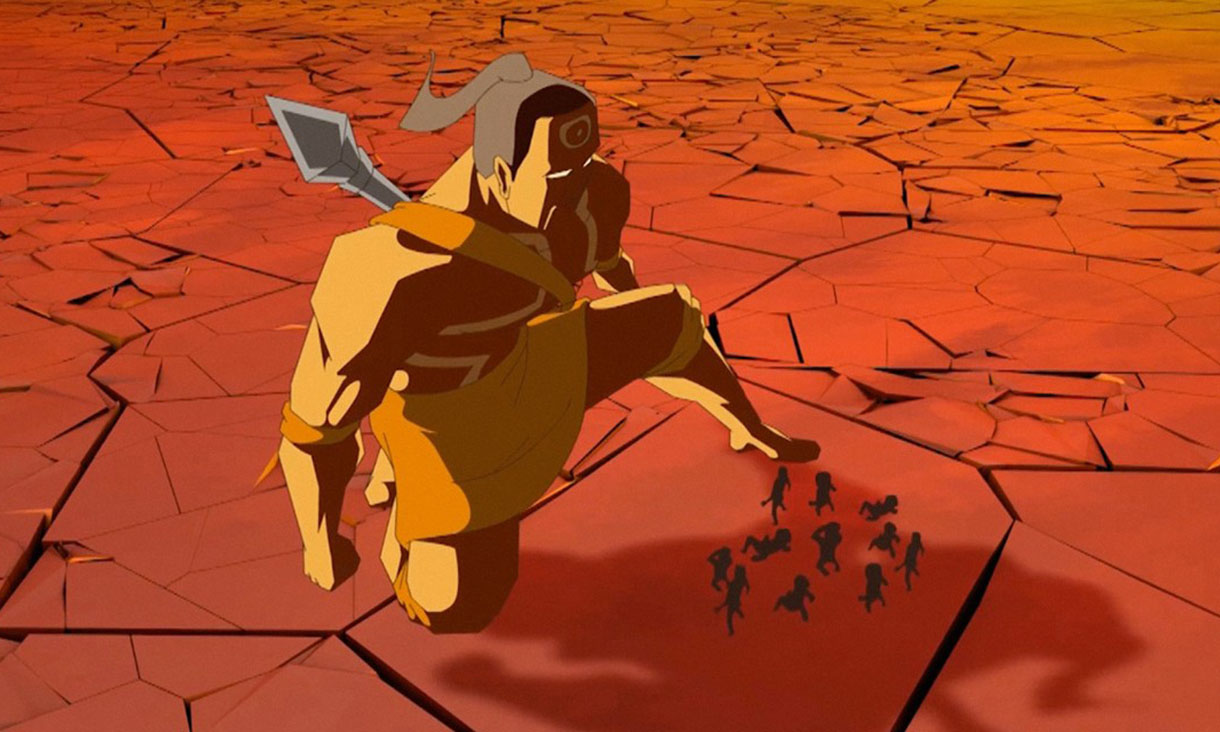[Title] Game Design at RMIT - transcript
[Short description] Hear from students and graduates about the thriving games design community at RMIT University.
Uplifting and quirky electronic music plays throughout.
Duration: 4:21 mins
[Visual] Two young male students walk past Pixel Alley gaming store. People are shown playing games in the store, at home, on mobile phones and other devices.
[Narrator]
Australians love video games. With more than 70 percent of Australians regularly playing video games, the gaming industry is now worth almost 3 billion in Australia alone.
[Screen title] Dr Doug Wilson – RMIT University Games lecturer, Co-owner & Lead game designer at Die Gute Fabrik
[Visual] Dr Doug Wilson talking to the camera.
Doug Wilson: Melbourne is a kind of hub of video games and creative digital industries in Australia and the region game designers and creators come to Melbourne to work in industry from all around the country and all around the world. RMIT offers a wide range of programs in games and interactive media. Whether you're interested in an advanced diploma, bachelor's degree or a master's program.
Our students learn in world-class facilities, learning not only how to make games, but also how to create an immersive world and memorable gaming experience.
[Visual] Melbourne City is shown, then sequence of games designers at work and various students are shown in classes, study and work environment. RMIT facilities are featured.
[Screen title] Nathaniel Bott – Current student, Bachelor of Design (Games)
[Visual] Nathaniel Bott talking to the camera.
Nathaniel Bott: So I grew up in Tasmania and at the end of college I was looking for a way to get into the games industry. Everyone I asked was talking about the community in Melbourne and so I decided to come up here and study at RMIT, because they offer opportunities to explore all the different areas of game design.
[Visual] Nathaniel Bott with classmates at classes, working on assignments.
[Narrator] Even though almost half of Australia's games players are women, games are often perceived as a male-dominated field but the numbers are changing. The Melbourne gaming community and RMIT keeps a strong focus on gender diversity with women making up half our enrolments.
[Visual] Female students are shown at classes, working on assignments, interacting with other students. Females playing games.
[Screen title] Marigold Bartlett ñ Graduate, Bachelor of Design (Games)
[Visual] Marigold Bartlett talking to the camera.
Marigold Bartlett: I'm proud of the gender diversity at RMIT and I think I've seen it actually make changes to the global market and industry. I was practicing as an illustrator but I was drawing mostly using a digital tablet and Photoshop and I went and had a look at RMIT's Art school and it didn't quite look right for me, so I decided to go and have a look at the games lab and everything was perfect. The software was up to date with what I was using, all of the art around the studios was exactly the sort of work that I wanted to be doing and everybody who I was talking to at the Open Day was very friendly and welcoming, so I jumped right in.
[Visual] Marigold Bartlett walking around RMIT campus, interacting with lecturers, working on her assignments.
[Screen title] Grace Bruxner – Current student, Bachelor of Design (Games)
[Visual] Grace Bruxner talking to the camera.
Grace Bruxner: So about seven months ago I started working here at the Geeks. I'm a QA specialist, which is Quality Assurance, making sure that the game is working basically. I look at the builds that we are releasing for our game on Armello make sure that they are all up to speed, they are functioning. I also track any bugs that come through.
[Visual] Grace Bruxner interacting with lecturers, working on her assignments.
[Narrator] A game is never just a game. It's a collaboration, a combination of digital media, animation, computer programming, design and storytelling. These skills you learn studying games and interactive media at RMIT open a world of possibilities beyond and surrounding the games industry. You might not end up at a games production company, you could also join a startup, a boutique design firm or even join the ranks of RMIT graduates, who have become highly successful independent entrepreneurs.
[Visual] Students interacting with lecturers, discussing current projects, working together on assignments.
[Screen title] Terry Burdak – Graduate, Bachelor of Design (Games)
[Visual] Terry Burdak talking to the camera.
Terry Burdak: The RMIT course has really helped me get to where I am today, just through the really eclectic group of people that have come to the games course. So the group came together in the final year again we were all working on a game together but what was really great about that is because we all kind of clicked during uni meant that we had a really great working relationship which we could then continue on outside of that. And since then we've developed a company which is growing slowly and even though that wasn't necessarily what we set out to do it's this really great thing that has been out of the outcomes of the course.
[Visual] Terry Burdak interacting with lecturers, working on his projects, showing some of his work portfolio.
[Screen title] Alex Perrin – Graduate, Bachelor of Design (Games)
[Visual] Alex Perrin talking to the camera.
Alex Perrin: So yeah I started up 2pt. with my friend Joshua Tatangelo a couple years ago. So we actually work on small to medium scale, like really polished digital design projects. We've been fortunate enough to work with the National Gallery of Victoria doing virtual reality work, which is really, really cool. At the moment we're actually working for Mercedes-Benz doing various sort of like small design projects, particularly with augmented reality as well which is really exciting.
I chose RMIT because they seem to have a focus on teaching ideas particularly within the games program. RMIT really worked for me because they really facilitated this idea of just working with your ideas and actually expanding upon those ideas.
[Visual] Alex Perrin interacting with his colleague, working on his projects, showing some of his company's work.
[End credits]
RMIT University logo





